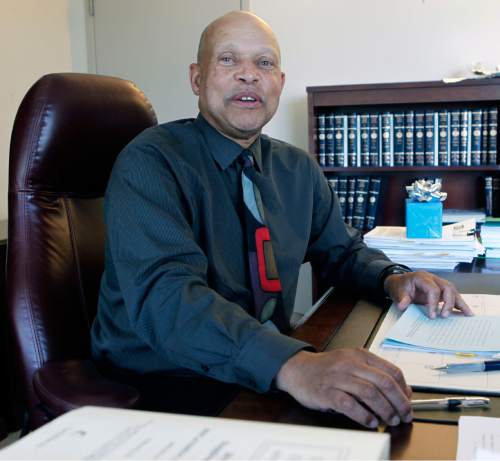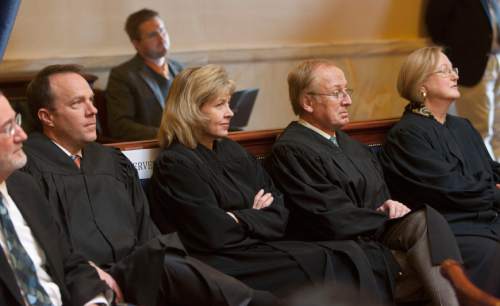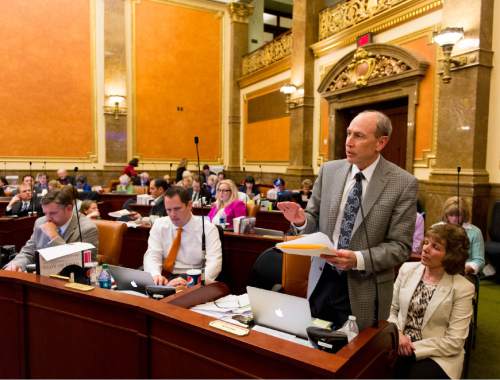This is an archived article that was published on sltrib.com in 2016, and information in the article may be outdated. It is provided only for personal research purposes and may not be reprinted.
Utah is the worst in the nation when it comes to having judges who reflect the state's population, with women and minorities underrepresented on the bench more than in any other state.
"When people do not see themselves represented in their community leadership, when the vast majority of judges cannot relate to the lived experience of those they serve — this is a problem," said Tracey George, a law professor at Vanderbilt University and co-author of a new study. "It creates a mistrust of judges and propagates the mystery surrounding the court system."
The nationwide analysis of the racial and gender makeup of the nation's courts by the American Constitution Society for Law and Policy found that in Utah, white men are 38 percent of the population but hold 79 percent of the judgeships. White women, who are 40 percent of the population, occupy just 13 percent of the spots on the bench.
Female racial minorities, constituting 10 percent of Utah's population, and male minorities who make up 12 percent of the state, each occupy just one out of every 25 judgeships on the Utah bench.
The group gave Utah a failing grade, as it did with 26 other states, but Utah's "gavel gap," as it was called, was the biggest in the nation.
The report comes amid a debate in the state about whether racial and gender diversity should be a consideration in screening potential judicial nominees.
Traditionally, the Judicial Nominating Commission, which screens applicants and recommends to the governor finalists for filling judicial vacancies, has considered diversity as a sort of tiebreaker when two candidates are qualified equally.
But Rep. Merrill Nelson, R-Grantsville, has argued for months that the Utah Constitution and statute prohibit considering diversity. He said people shouldn't be concerned about the disparity between the population and the bench.
"We have a fine judiciary, and my only interest is maintaining the highest quality of our judiciary," Nelson said. "When we start basing judicial office on factors or considerations other than legal ability, then we get into a deep slippery slope where anything goes and we are no longer assured we have the best quality."
Nobody, whether it is in a civil or criminal case, goes to a courtroom entitled to a judge who is the same race or gender, Nelson said.
"Whenever anybody comes into a court, [do] we need to go in search of a judge that has the closest experience to the litigant in the court? That's just crazy, but that's the result of the argument being made," he said. "What a litigant can expect is that judges will be entirely impartial, entirely fair and equal to everyone who comes into the court, regardless of race or gender or so-called life experience."
After Nelson raised the issue at a legislative committee hearing in April, Ron Gordon, executive director of the Commission on Criminal and Juvenile Justice, who leads the nominating commission, agreed to remove any reference to diversity from the judicial application, at least temporarily.
Gordon said Wednesday that, on July 1, the commission will publish a proposed rule that would reinstate the diversity language that has been on the application, and that the rule could take effect after a 30-day comment period.
"You have to have other factors to analyze when it appears that all applicants are comparable, and in those situations, it is appropriate to consider the makeup of the bench and, as the administrative rule would say, the experience and background of the individuals who are applying for that position," Gordon said.
As the director who has overseen the commission's work on at least the last 60 judicial vacancies, Gordon said he is aware of the makeup of Utah's bench and not necessarily surprised by the lack of women and minorities in robes.
"I'm not surprised," he said, "but that doesn't mean I'm not disappointed and wish we could find more."
Twitter: @RobertGehrke







